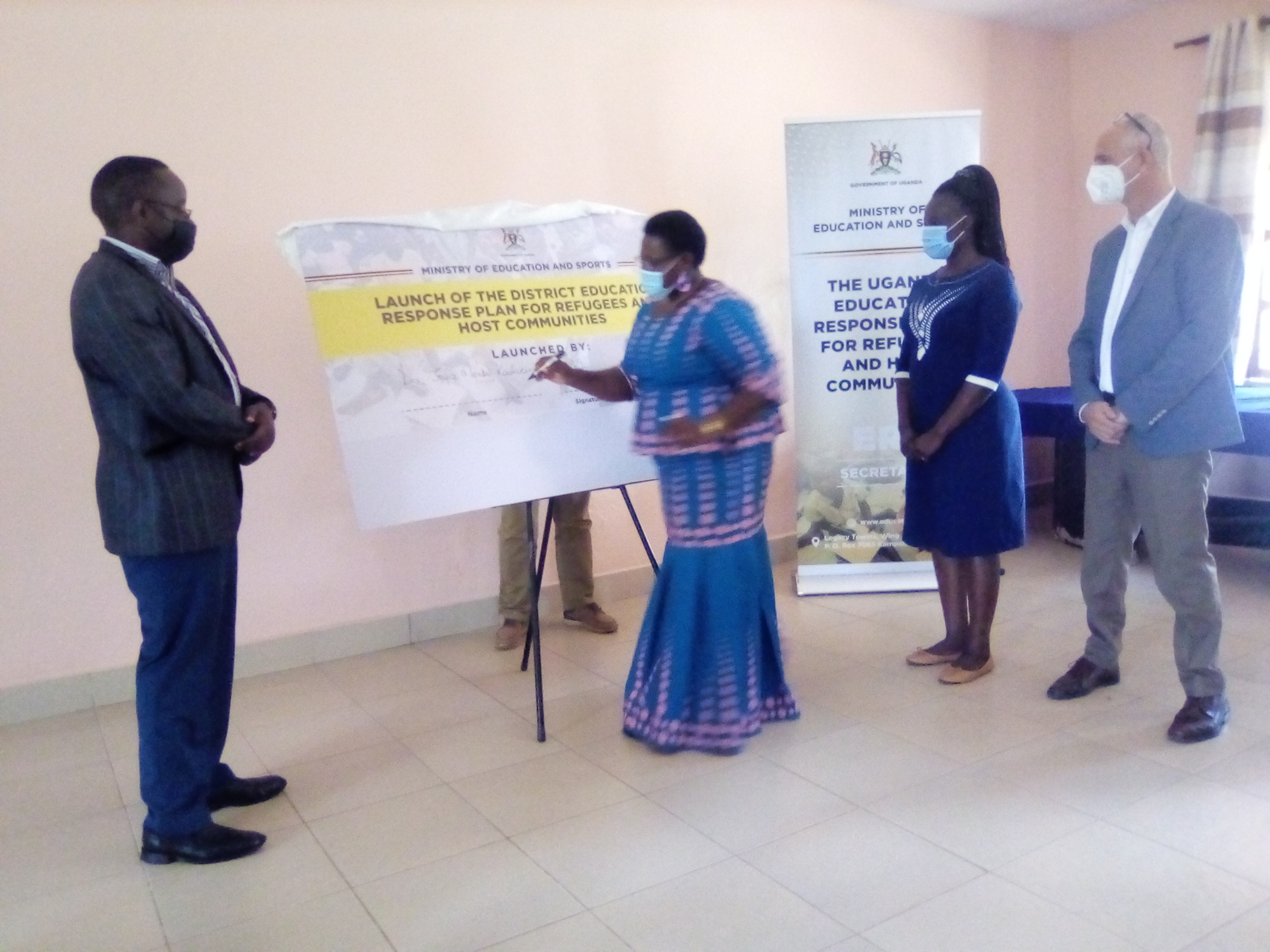HOIMA – The country representative for United Nations High Commission for Refugees (UNHCR), Joel Boutroue, has called for the need to mobilize more funds to support the education of refugees and host communities.
He made the call as the Ministry of Education, United Nations High Commission for Refugees and Kikuube district local government launched a district education response plan for refugees and host communities.
The response plans will work as a guiding tool in promoting education among the refugees and host communities in Kyangwali refugee settlement area with 14,116 refugees.
The response plans will focus on addressing issues affecting the education sector resulting from the Covid-19 pandemic, skilling school dropouts, and advocating for girls who got pregnant during the lockdown to go back to school.
Special consideration will also be made for construction of class rooms and technical schools, staff quarters, sanitary facilities, empowering teachers, school administration and school management committees.
The initiative will benefit 30,000 learners from eight government schools and 13 private schools.
In his address, Boutroue from UNHCR said, there is a need to mobilize funding from development partners such as World Banks (WB) and European Union (EU) to support education in refugees’ host districts in the country.
According to Boutroue, UNHCR is supporting more than 400,000 primary refugee school going children and over 4000 teachers in refugee host districts. He added that they have been supporting education with $20million every year.
Boutroue further noted that, as the world copes with the new normal, funding is inadequate to deal with the challenges affecting the education sector in refugee settlement areas.
He also noted that as the country plans to open schools next year; there are many challenges that will need to be addressed before children report back.
“Our emergency as the president said, is to open schools in January. We therefore have to plan well to ensure that by January, we have the required infrastructure or necessary organizations to put in place double shifts because already schools were crowded before the Covid19 pandemic. Now, we have two cohorts or more lining up to join school. We need to be practical about setting up temporary structures, and double shifts which mean having more teachers at a time of limited resources,” said Boutroue.
While launching the response plans in Hoima City, the State Minister for Primary Education, Joyce Kaducu commended UNHCR and other partners for supporting education.
The Minister also said, the government is planning to integrate digital education in pre-primary and primary schools to take forward the education sector.
She noted that to adapt new technology, there is need for different stakeholders to start critical planning because Covid-19 has brought on board critical thinking and effective implementation of strategies.
“Social media is something that the Education Ministry is working on. We need digital education, we need a digital rollout to the entire country but that alone needs to be regulated, to help the girls and boys to use it meaningfully because there is a lot that can destroy the lives of these children equally from the same social media,” she said.
Minister Kaducu further noted that there is a need for stakeholders to prepare for the opening of schools next year. Issues such as inadequate staffing, school structures and SOPS materials must be addressed before schools open.
The Minister also called on different stakeholders including religious, cultural and political leaders to advocate for the education of the girl child. She added that there is a need to mobilize parents to take the girl children who got pregnant during the lockdown back to school.
According to the Minister, the Covid-19 Pandemic has exposed parents’ and communities’ weakness in looking after their children.
Buy your copy of thecooperator magazine from one of our country- wide vending points or an e-copy on emag.thecooperator.news
